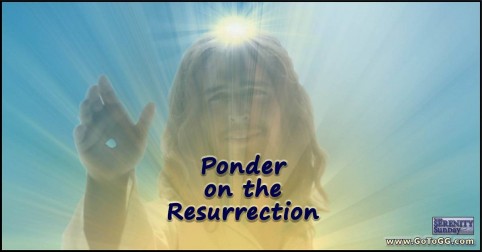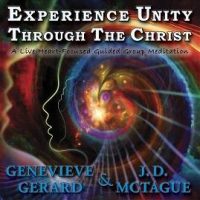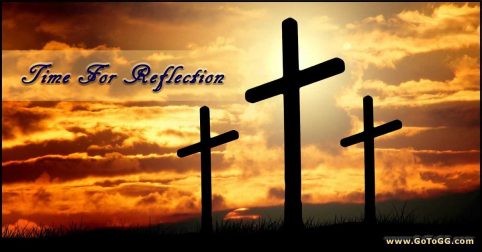Easter Ponderings on Resurrection
Easter Ponderings on Resurrection
On Easter, we celebrate the Resurrection of Jesus.
There is perhaps no more miraculous event in the story of the life of Jesus than the resurrection. There is perhaps no part of Jesus’s story that fills the human heart with hope and promises more than the resurrection.
The very possibility of resurrection defies the laws of matter as we understand them. Resurrection is the ultimate victory over death. Resurrection is the triumph of spirit over matter. It is a mystery that is beyond our comprehension, and it is a mystery that is not explained in either the Bible or church teachings in any century or denomination. In spite of the inability to understand the miracle of resurrection, the very possibility and promise of it fill the human heart with joy.
During this time while churches across the planet celebrate with the powerful words “He is risen,” “He is risen indeed” it may be valuable to ponder upon what the resurrection says about the life of Jesus and what it says about our spiritual journey and spiritual responsibility. It is all too easy for you to dismiss the lessons of the life of Jesus as unrelated to your life. After all, He was the Son of God. He had an edge that you do not have.
From my very early forays into theology, it has been clear that what Jesus demonstrated in His life, His example and His mission was more than historical stories and miracle stories. These stories were an example and teaching that had relevance for how we were instructed to live our lives, to find our way in the spiritual journey.
There is no greater mystery in the life of Jesus than the miracle of resurrection. Even those of deep and unwavering faith can affirm that the resurrection was real and is real without understanding how it was possible.
I believe even Jesus’s most beloved disciples and the women who went to his tomb on Easter morning, may not have fully understood the resurrection at the time. Thomas, whose very name became associated with doubt, refused to believe in the resurrection unless he placed his hands into the wounds made by the crucifixion. Even though the story tells us, that Jesus was walking and teaching His disciples after his passion.
To understand both the miracle of the Resurrection and what was being demonstrated about the nature of life, we need to expand our understanding of the nature of life itself; and, more importantly, the nature of matter, the nature of consciousness and most importantly, the nature of the Soul.
– Genevieve Gerard
In some ways, the event of Resurrection is entirely miraculous, testing and at times transcending our ability to believe. In some ways, the Resurrection is no more miraculous than the event of life itself. I believe to glimpse what Resurrection promises we must expand our understanding of the nature of life to way beyond our usual comprehensions. We must open our awareness to the eternal nature of our Soul, to the great potentiality of consciousness, and stop limiting our thinking to the dense matter of our physical vehicle.
If you are a Christian, think of the Christ, who came not to be served by others but to serve them in joy, in peace, and in generosity. For these things, these are not mere words, but acts, which go all the way, right up to their last breath. Even their death is a gift, and resurrection is born from this kind of death.
– Jean-Yves Leloup
Much that is miraculous, much that is mysterious, becomes possible and more understandable when we assert the fact that although we have a body; we are as a consciousness much more than a body. For the Soul to manipulate the atoms of matter to create a physical body once the material body has deteriorated is a repetition of the events that the Soul engages in to bring into life and substance every child that is born. The principle is the same. It is the consciousness, or particularly the continuity of the consciousness that Christ brought to his resurrected body.
The miracle of life itself and the miracle of the resurrection is entirely under the direction of the Soul. What is to me the most important part of the Passion of Jesus is what it teaches us as spiritual beings about the relationship with our Soul. What Jesus demonstrated that we can use as an example for our own lives was complete obedience to not only the direction of His Soul but perfect obedience to Divine Will.
It is evident in the stories of His suffering in Gesthenemeny that He was coming from two very different perspectives. He was demonstrating both his personal life and His Soul life. Certainly he did not want to be arrested, scourged and crucified from his human perspective. Whether He as a personality knew or fully understood the importance of the next few days of His life is something that theologians will probably be discussing and arguing about for the next 2 thousand years.
What is important and significant is not if he had pre-knowledge of the significance of His sacrifice and all of the magical and mystical ramifications of it. What it seems is important is the obedience to His Soul and God that he demonstrated. That is a lesson that we can strive to achieve in our own lives and our own journey.
What is certainly clear if we examine the life of Jesus is that he was in touch with the direction and promptings of His Soul and through that relationship in an ever growing relationship with God who He came to regard not only as the Source of Love in his life but as His Heavenly Father. He taught us not only that “God is Love,” but also oneness with the Divine as He taught “I and the Father are One.” These are an understanding and awareness that only comes from the Soul. This is an understanding and awareness that is achievable by developing a relationship with your Soul.
It is a magnificent miracle of the human experience that we exist in a dual relationship with our material human body, with our emotions and our thoughts, while we have a Soul which is eternal. These different parts of our nature are revealed and direct our life in different ways. Indeed, learning to identify the prompting of your Soul from the desires of your personality is a big part of the spiritual journey. Learning to call upon and utilize the power of your Soul or the power of the Soul of another in healing is a lesson taught time and time again in the spiritual life, especially when your life is dedicated to others.
It is through surrender to the Soul that the body, emotions, mind, and integrating efforts of the personality can come into awareness of the eternal essence of your being.
– Genevieve Gerard
In my Easter morning ponderings on the resurrection, I find it inescapable to realize that the miracle of resurrection is the secondary result of the surrender to the Soul. It is through surrender to the Soul that the body, emotions, mind, and integrating efforts of the personality can come into awareness of the eternal essence of your being.
Through a relationship with your Soul, especially in the decision to “let the Soul control” is a new awareness of how miracles are created. It is through the time you live and demonstrate the dual life of a disciple that the life and example of Jesus become most edifying and significant. It is through the expanded awareness that life and consciousness are not limited to your physical body that the whole concept of resurrection becomes a real possibility.
While what was demonstrated in the Resurrection remains beyond the strength and determination of most of us at the time of our death, stories are told throughout time of a loved one appearing to communicate after physical death, usually a message of love and reassurance to those they have left behind. If we consider the Resurrection of Jesus one more demonstration, one more instruction about the unlimited possibility and potentiality of life, and we open our hearts and minds actually to consider what all of this means, we are reassured that death has no victory, and the life of the Soul is eternal.
It is by pondering what the Resurrection demonstrated about the truth of life, the nature of life and the eternal nature of life that we are freed from the fears that our limited comprehension fosters.
The possibility and promise that Easter gives, even if we fail to understand it fully, is the joy and assurance that consciousness is eternal. We, as the children of God and the carriers of the spark of the Divine enjoy that eternity as a part of our birthright. In the Resurrection, the life of Jesus once more demonstrated to us, as he did throughout his life, what we truly are. So we celebrate with joy the life and the teachings of this master of enlightenment, pondering what his resurrection teaches us about our life, our own Soul and the awesome potential of our own consciousness. Let there be light!
Namaste,
Genevieve
The Blessing of Love on All That You Do!
P.S. QUICK FACT: This post has been viewed 17,147 times. Please share it with friends and then check out our other related posts below and in the “Hot Topics” sidebar.
Hand-Picked Posts You Might Also Like
-
Recommended Meditation
Experience Unity Through the Christ
A Live Heart-Focused Guided Meditation by Genevieve Gerard and J.D. McTague
available on my website or Amazon, or iTunes.
If you have benefited from or enjoyed this post, you can help by doing any of these actions.
1) Share this with your friends or community.
2)Make a donation to enable me to continue teaching, writing,
and support spiritual growth and awareness in the world.
Last updated 4-7-2023
About the author:
Genevieve Gerard teaches Transformational Consciousness – from first awakening to enlightened Soul awareness. She helps you experience the joy that results from the spontaneous “touch of your soul.”
Read more details…
Genevieve has a Bachelor’s Degree in Philosophy and Theology and a Master of Arts Degree in Counseling and for over thirty years has worked one-on-one with people who were recovering from devastating disabilities and chronic pain. Teaching the mastery of the mind-body relationship she was one of the early professionals trained in biofeedback, visualization, imagery, and meditation as essential techniques to help people heal their bodies, heal their emotions, heal their minds, and heal their lives.
Genevieve’s work demonstrates what she knows so well, “It is spiritual connectedness that triggers physical healing and emotional and mental well-being.” Helping people, like you, tap into your higher-self is the power she wields to guide you to heal and transform your life.
Now, with this understanding, she combines the effective techniques she developed over decades teaching mind-body mastery along with her extensive experience in meditation and spiritual development to create a synthesis of mind-body-spirit that delivers complete healing and opens the door to unlimited personal growth and an encounter with your Soul.
In addition to her current life guidance coaching sessions, and workshops performed around the world, Genevieve has produced more than 20+ guided meditations in the last eight years that are available on iTunes, Amazon, and her website.
It is her vision that through your experience with the techniques of awareness, visualization, and meditation, the love of your Soul will touch and transform your life through her writings and products. It is her sincere desire that the potential of a life of joy and celebration that seems to elude so many people can become a reality for you, now and forever.
Browse her life story and read the Touch of the Soul that changed her world. To contact Genevieve, visit her keep in touch page.
Copyright © 2016-2023 Genevieve Gerard and Touch of the Soul LLC. All Rights Reserved.
Easter Ponderings on Resurrection Read More »




